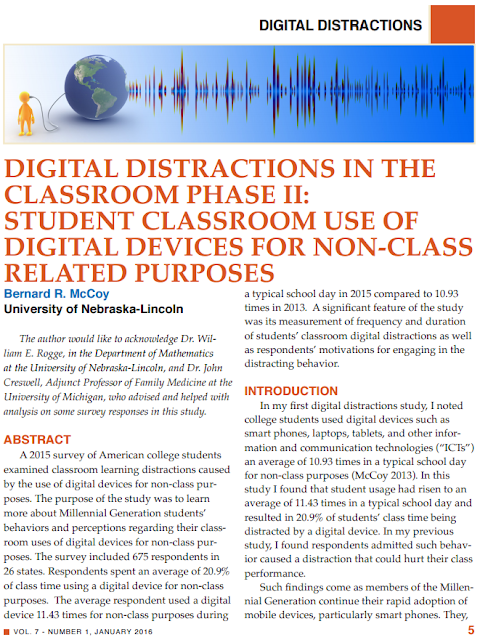Last night, my nine-year old son was using my smartphone. I thought he was checking on his current collection of football cards in the
Topps Kick app. Then, I heard him talked on the phone, "
Okay, Google, how old is Neymar, Junior? The phone answered, "
Neymar is 23 years old." My son was using
Google's Voice Search app on my phone. So I took the phone and asked, "
Okay, Google, What is a hygrometer", since my son's fourth grade class was currently studying weather in their science class. The phone answered, "
Hygrometer, an instrument for measuring the humidity of the air or a gas". To say the least, I made the excitement disappear.
It is truly amazing what digital devices can do. I can check on my smartphone on how my students are doing in their homework. The flipside is students can check on something else while they are listening to my lecture. I do walk around the classroom while I give the lecture so that probably discourages students from opening an
app on their digital devices, but nationwide, the amount of time spent by students on digital devices inside the classroom doing unrelated tasks has been on the rise. A
recent survey involving more than 600 students across 26 states made by Bernard McCoy from the University of Nebraska-Lincoln shows that students inside classrooms are using a smartphone or another digital device 20 percent of the time on distractions.
By comparing classes, one can see that the younger students are using digital devices more for non-classroom related activities. It is clearly getting worse.
The main reason why students are doing these apparently is boredom. Listening or paying attention to a lecture is indeed taxing. It requires, as noted by McCoy, self-control. McCoy writes in his discussion:
Respondents said fighting boredom (63%) in
the classroom was a leading reason they used
digital devices for non-class activities. This suggests
a need for students to learn more effective
self-control techniques to keep them focused on
the learning at hand in classroom settings. It also
suggests instructors might benefit from learning
and experimenting with new ways to engage
college students in classroom activities that might reduce boredom and minimize disruptions
caused by non-class uses of digital devices.
I did not push my son to use my smartphone to help him review science. I was in fact amazed that he found out on his own how to do
Voice Search. But I am hoping that we, teachers and parents, are soon able to catch up with technology.


Comments
Post a Comment